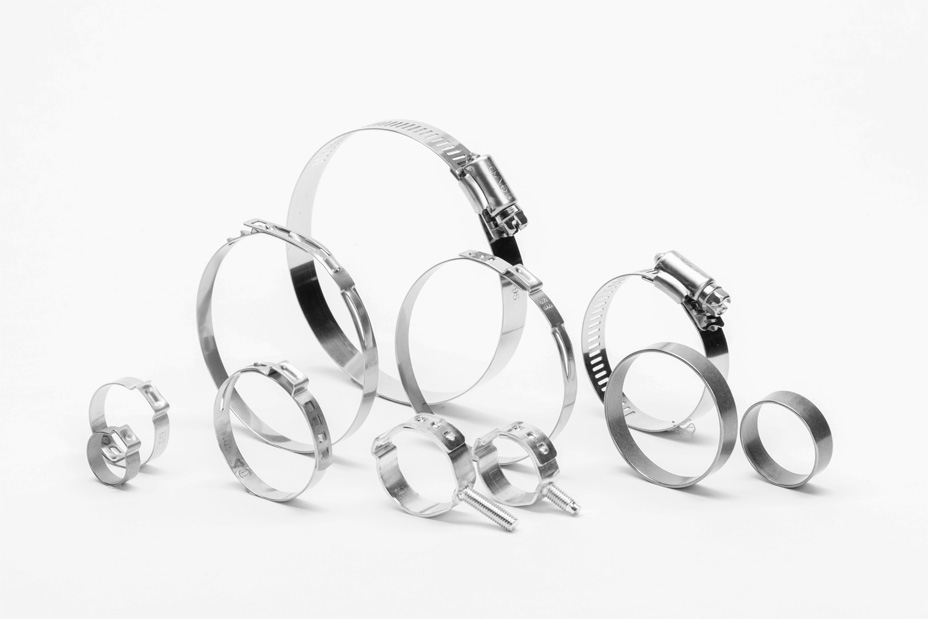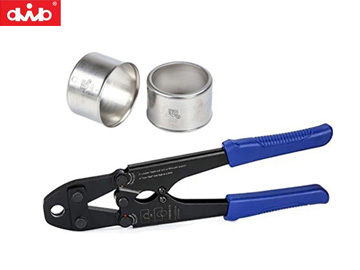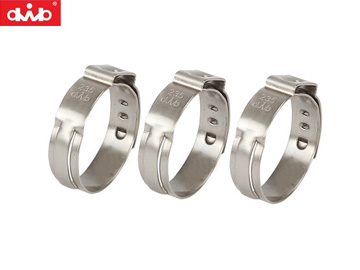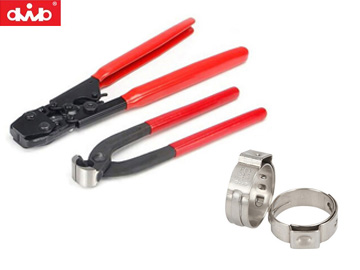
When you connect a hose to a nipple or barb, the fluid you’re transferring might leak if there’s no way of making the joint firm.
A hose clamp is designed primarily for this problem; with it, you’re able to press the hose onto the nipple and prevent fluid leakage.
Now, there are many hose clamps out there but not all of them will serve this purpose perfectly, and that’s why we’ve composed this post.
We’re going to show you how to choose the hose clamps that suit you. Here are some of the most important considerations to make to ensure you’re buying the right hose clamp.
Basically, there are three types of hose clamps – wire, screw, and spring.
Screw hose clamps feature a band with screw threads cut into it and a screw on one side. When you turn the screw, you’re able to open or close the clip depending on which side you’re rotating the screw.
Spring clamps are made of a flexible material designed as a ring with intersecting ends. Spring clamps opened by pressing the ends together and closed by releasing it. Ordinarily, spring clamps are utilized in vehicle factories particularly for radiator hose clamps.
Wire clips have different designs, with the most common one having a shape like a U and a pair of nuts that form a circular shape with the U when closed.
Of the three types of hose clamps, screw types are the easiest to use. However, they work the best for diameters greater than a ½ inch.
If your clips are to last, they’ve got to be made of sturdy materials. Stainless steel is, without a doubt, the best material for hose clamps, as it not only resists salt, water and other elements that can lead to corrosion but also contains enough rigidity to apply pressure without breaking.
Check out the first hose clamp on our review – it’s entirely made of stainless steel from the band to the screw and the housing, and hence, it’s a perfect hose clamp for someone looking for the utmost strength and durability.
Hose clamps are normally sold in kits, and these kits contain clips of different sizes. Before buying hose clamp kit, think about all the applications you want to use the hoses for and see if the sizes contained in the hose clamp kit will work for you.
Q1. What’s a hose clamp used for?
Hose clamps comes in handy for sealing the joint between a hose and a fitting like a nipple. Its purpose is to ensure the hose stays connected to the fitting and that there are no leaks.
Q2. Can a hose clamp be used for purposes other than its intended use?
Yes. A hose clamp can be used in place of a duct tape where something needs to be secured on a round object.
Q3. How do I measure the needed hose clamp size?
You can do it using a dial caliper. What is needed in this case is the outside diameter, as the clip will be fitted on the pipe, not inside.
Q4. When was the hose clamp invented?
People have been using hose clamps from as early as pipes were invented. And of course, the ancient hose clamps were simple clamping tools. The modern screw clamp was invented in the 1890s by Knut Edwin Bergström.
Q5. How does a hose clamp work?
A hose clip holds a hose securely on a nipple, and the mechanism used depends on the type of clip in question. Screw clamps are tightened using a screw while spring clamps are self-adjusting.
Q6. What is a clamping device?
A clamping device is a tool used for holding items securely together to ensure they don’t move or separate when there’s pressure. A hose clamp holds a pipe securely onto a nipple, preventing it from coming off when the pressure inside the pipe grows.
Q7. What’s a screw clamp?
A screw clamp is a clip consisting of a screw and a band with screw threads. When the screw is rotated, the action can either open or close the clip depending on the direction of the rotation.
Q8. What types of hose clamps are there?
The main varieties of hose clamps include screw, spring, and wire. Screw hose clamps are the best type of hose clamps with regards to the ease of use, but spring clamps are more suitable if the hose diameter is less than a ½ inch.
Which of the best hose clamps did you find most useful to you? If you haven’t made up your mind yet, go through the buying guide and see the factors to consider to ensure you’re getting the best hose clamp.
Remember, if the diameter of the hoses is less than ½ inch, it’s better to use spring hose clamps, but if it’s larger than that, screw clamps will be more appropriate. Here’s our suggestion: get two kits – one composed of screw clips and one compsed of spring clips to be able to handle different hose diameters.
This is What I Need, Contact to Customize.


